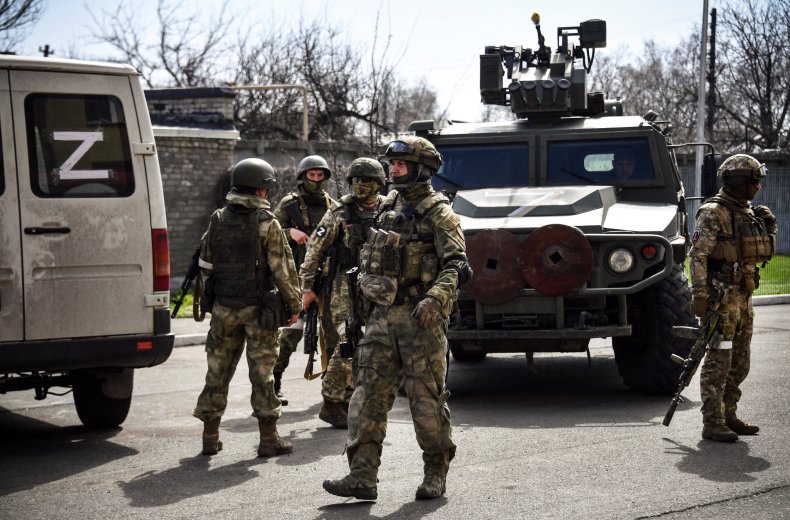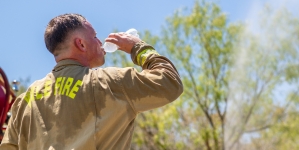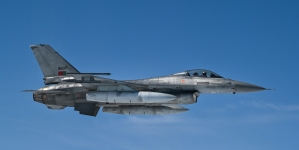-
Russia’s Efforts to Expand Forces Leave Key Questions Unanswered: ISW - September 25, 2023
-
A portion of Mulholland Drive, damaged by mudslides in winter storms, reopens - May 26, 2024
-
‘Maybe You Don’t Want to Win’ - May 26, 2024
-
Donald Trump Putting Law Enforcement in Danger: Attorney - May 25, 2024
-
Avoid the waters of these 5 L.A. County beaches this holiday weekend, public health officials say - May 25, 2024
-
Bawdy Comedy ‘Anora’ Wins Palme d’Or at Cannes Film Festival - May 25, 2024
-
Map Shows Heat Wave Zone Spread Into Five New States - May 25, 2024
-
Azusa police arrest suspected slingshot-wielding vandal - May 25, 2024
-
Donald Trump Hammers Judge Ahead of Jury Instructions - May 25, 2024
-
Sometimes U.S. and U.K. Politics Seem in Lock Step. Not This Year. - May 25, 2024
Russia’s Efforts to Expand Forces Leave Key Questions Unanswered: ISW
Russian officials are sustaining their push to expand Moscow’s armed forces along the front lines in Ukraine, although the U.S.-based think tank Institute for the Study of War (ISW) notes that it “remains unclear” how the Kremlin intends to equip the new brigades, given ongoing recruitment difficulties.
Russian news outlet Izvesetia reported on Monday that the Russian armed forces have begun actively recruiting for fresh brigades that will be trained to conduct reconnaissance at “tactical depth,” according to Moscow military officials who spoke with the outlet. Some brigades will also be comprised of assault troops intended to break through layered defenses, and all formations will be equipped with their own tanks, armored vehicles, artillery and drones.
The goal of the new formations is to “overcome” Ukrainian defensive positions, with particular focus on Kyiv’s positions in the eastern Donbas region, reported Izvesetia. Since launching its counteroffensive in early June, Ukraine has continued to chip away at Russian-occupied territory in the eastern and southern portions of the country, and have successfully regraded some of Moscow’s key military infrastructure stationed on the Crimean Peninsula.

ALEXANDER NEMENOV/AFP via Getty
As the ISW wrote in its latest assessment on the war in Ukraine, Russia has “previously attempted to adapt to lessons learned in Ukraine” by forming smaller, assault-focus military units in an effort to target urban and fortified areas, such as the “Storm-Z” companies largely made up of Russian convicts. But such company-sized units have been “mostly unsuccessful” in the war, ISW notes, and that the Kremlin has not seemed to find a way to overcome its recruitment and training hurdles in meeting troops’ needs on the battlefield.
“ISW has been reporting on ongoing Russian military reforms and the creation of new combined arms army and army corps level formations, and it remains unclear how the Russian force generation apparatus will be able to recruit, train, and staff brigade, army, or army-corps level formations considering the multitude of endemic mobilization issues the Russian army faces at this time,” read ISW’s assessment.
Newsweek reached out to Russia’s Defense Ministry via email for comment Monday night.
Russian President Vladimir Putin has not announced another mobilization of troops since enacting a “partial mobilization” last fall, although some Moscow officials have indicated that they may favor another wave due to their armed forces’ heavy losses.
Ukraine has seen a string of success in its counteroffensive campaign, including reportedly taking out 34 Russian officers in an attack on Russia’s Black Sea naval fleet headquarters in Crimea last week, including the fleet’s commander. Russia has not confirmed or denied Kyiv’s report, and Newsweek previously reached out for comment.
The ISW also reported on Monday that Ukraine may have made additional gains in the Zaporizhzhia region, although the progress remains unclear. Russia, on the other hand, reportedly conducted several unsuccessful offensives near the city of Bakhmut, the think tank said.
Source link































